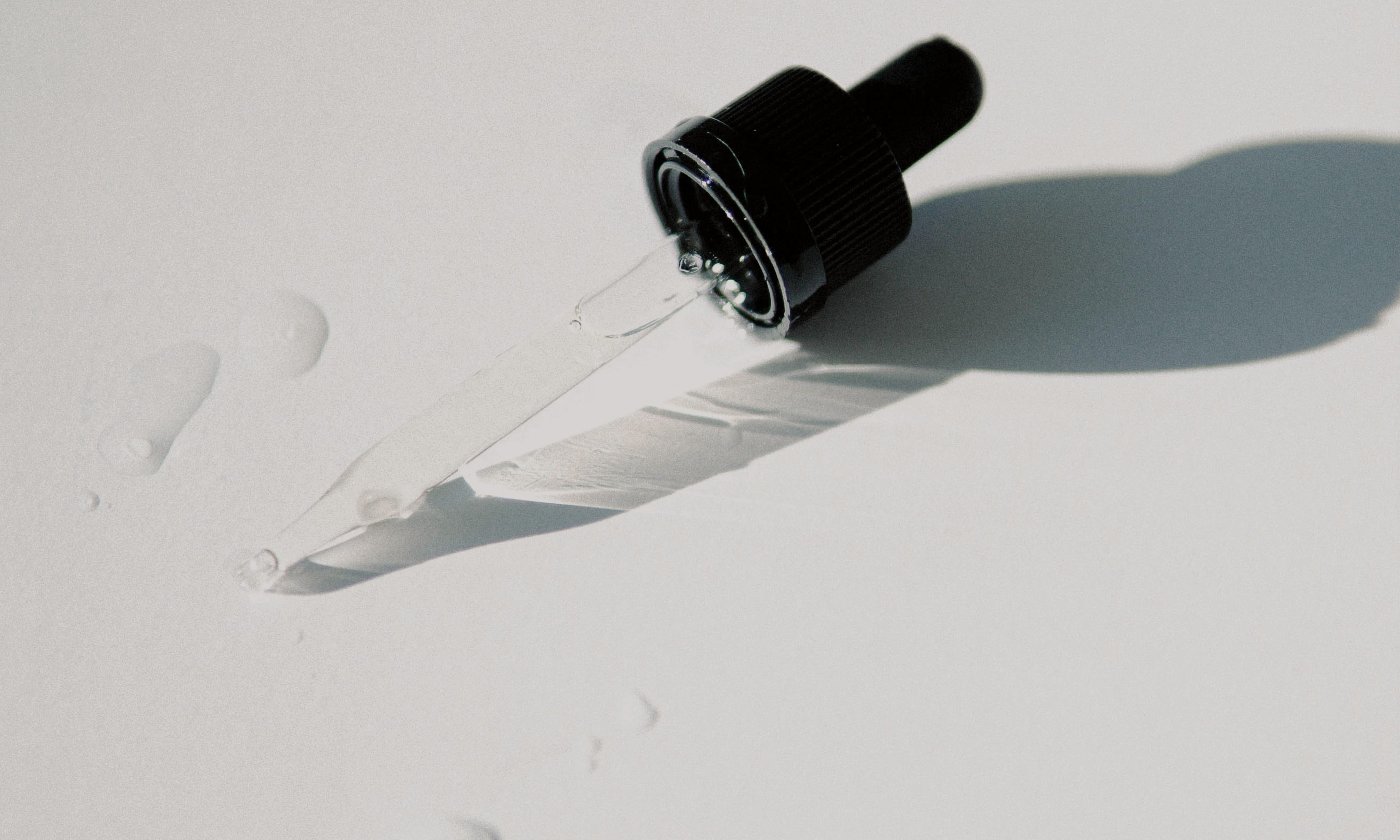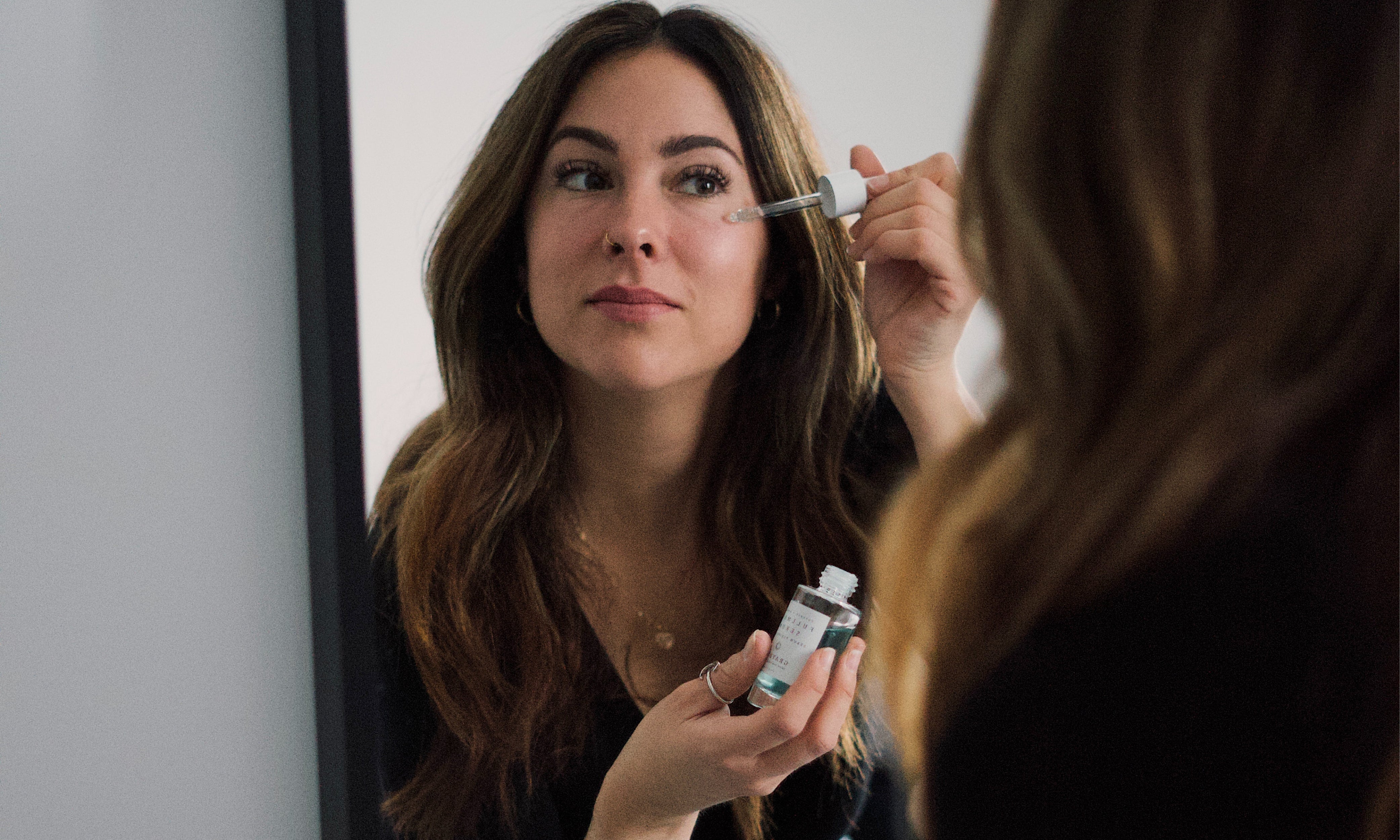
KNOW YOUR ACIDS
The word “acid” in skincare might make some think twice––but we can assure you that, when used properly and at the right concentrations, acids are actually some of the most beneficial ingredients available in skincare.
Acids are used to fight acne, wrinkles, age spots, scarring, hyperpigmentation, uneven skin tone, and more. With so many acids on the market (and each of them with unique names and functions), it can be daunting to untangle.
We’ll keep the science part brief: if you’ve ever taken a high school chemistry class, you’re probably familiar with the pH scale. Something at 7 on the pH scale is perfectly neutral, while any substance below that number below is considered acidic.
We’ve gone in-depth about alpha and beta hydroxy acids (you may know them as AHAs and BHAs) in a past blog article, but to give you a quick recap:
- AHAs are water-soluble and work mostly on the skin’s surface. This makes them a great option for treating fine lines, texture, and dullness. They help increase cell turnover, gently exfoliate the outer layer of skin, leaving skin brighter, etc.
- BHAs, on the other hand, are oil-soluble. They penetrate deeper into clogged pores and are best known for treating acne and removing excess sebum
Now that you know the basics, are you ready to get to know your acids? Keep on reading.
SALICYLIC ACID (BHA)
Salicylic acid is one of the most popular acids. It is best known for its ability to exfoliate the skin and keep pores clear, which makes it a top-notch acne fighter. You can find it in serums and cleansers in various concentrations, as well as in spot treatments for breakouts.
In dermatology clinics, salicylic acid is also used in higher concentrations as a peeling agent for treating acne, acne scars, melasma, sun damage, and age spots.
- Approach with caution if: you have sensitive skin
- Best for: oily and acne-prone skin types
GLYCOLIC ACID (AHA)
Glycolic acid is the most popular AHA used in skincare. Derived from sugar cane, it is the smallest and simplest of AHAs–”making it the most effective at getting into the skin”, says Kenneth Howe, M.D., dermatologist at Wexler Dermatology in New York City.
Glycolic acid is a fantastic anti-aging agent that is very effective at exfoliating skin, reducing fine lines, helping to fade dark spots, and evening out skin tone and texture. It helps shed dead skin cells by loosening their bonds, and therefore revealing the newer, brighter layers underneath. It is commonly found at concentrations below 10 percent.
Much like salicylic acid, glycolic acid is also used in peels for treating acne and pigmentation. It is important to note that the use of glycolic acid increases sun sensitivity, so you need to use sunscreen daily to prevent any extra sun damage. Although, no matter the time of year or where you're going...slathering on SPF is e-s-s-e-n-t-i-a-l.
- Approach with caution if: you have dry/sensitive skin or cystic acne
- Best for: normal, combination, and oily skin types
AZELAIC ACID
Azelaic acid is found in many prescription-only creams and can be found in 15 to 20% concentrations. It keeps pores clear, kills bacteria, and reduces inflammation. It can be found in a handful of cosmetic products in concentrations under 10%. As well as treating acne, azelaic acid is also a skin-lightening agent, making it practical for fading post-acne marks or hyperpigmentation.
Is azelaic acid an AHA? It’s kind of a category of its own, known as a dicarboxylic acid. It works similarly to an AHA, as in it is an exfoliant that works to slough off dead skin cells at the surface of the skin.
- Approach with caution if: you have sensitive skin (can cause stinging, redness or peeling)
- Best for: acne-prone skin types, those with rosacea and hyperpigmentation
ASCORBIC ACID
Also known as Vitamin C in its most common water-soluble form, ascorbic acid is loved for its lightening properties and anti-aging effects. Vitamin C is "a potent antioxidant that can neutralize free radicals," explains board-certified dermatologist Patricia Wexler. "Because of its antioxidant properties, vitamin C aids in your skin's natural regeneration process, which helps your body repair damaged skin cells." It is also used in the creation of collagen, therefore making it essential to your skin’s overall health.
The antioxidants in vitamin C may help defend against the damage that UV light can cause and reverse the darkening of sunspots. Please note that does NOT mean that you can use a vitamin C skin serum in place of sunscreen, as it is not an SPF.
Vitamin C serums increase sensitivity to sunlight, so it is imperative that they be worn under sunscreen. It can be applied twice a day, but should not be paired with retinol. Other forms of vitamin C you may find include tetrahexyldecyl ascorbate, magnesium ascorbyl phosphate, and methylsilanol ascorbate. They are neither AHAs or BHAs, as they are also considered to be in their own category.
- Approach with caution if: you have sensitive skin or may have allergies to vitamin C
- Best for: Those with hyperpigmentation, acne scars, dark spots, dull skin, and those with aging skin types
HYALURONIC ACID
If you have dry-skin concerns, HA is for you. Unlike other acids, HA does not dissolve dead skin. Hyaluronic acid is a natural humectant found in the human body that cushions and lubricates skin, which decreases in quantity as we age. It can be found in many moisturizers, serums, and even as an injectable filler.
Hyaluronic acid doesn't function like an AHA or BHA, as it does not strip your skin. In fact, it’s so nourishing and hydrating that having “acid” in the name is a bit misleading––HA is great for applying after many exfoliating acids.
- Best for: all skin types
LACTIC ACID (AHA)
Designed to help you both moisturize and exfoliate at the same time, lactic acid is a milder version of glycolic acid that’s great for smoothing the skin. Lactic acid is specifically used to treat hyperpigmentation, age spots, and other factors that contribute to a dull and uneven complexion.
Again, this acid’s “peeling” effects will make your skin more vulnerable to the sun’s ultraviolet (UV) rays, so sunscreen is non-negotiable.
- Approach with caution if: you have sensitive skin, eczema, psoriasis, rosacea or other inflammation like active breakouts
- Best for: Those who have tried other acids and found them too strong
Any more questions about the ingredients in your products? Make sure to write us a comment, or even better: schedule your virtual consultation with one of our medical estheticians for all the skincare assistance you need. We’re here for you, whenever you need it!
Until next time,
Mathilde











Leave a comment
This site is protected by hCaptcha and the hCaptcha Privacy Policy and Terms of Service apply.